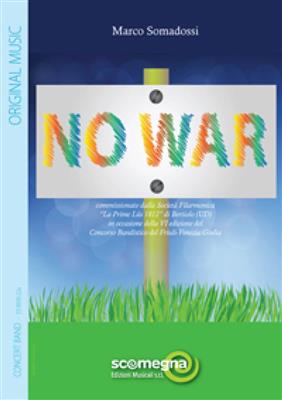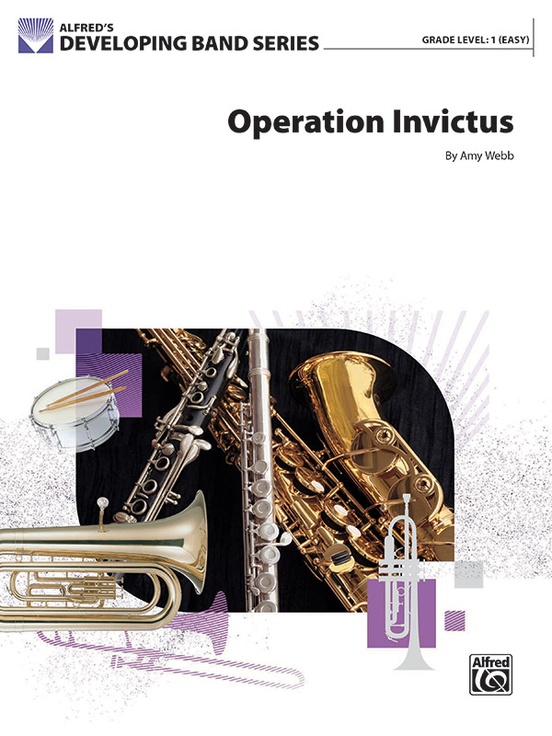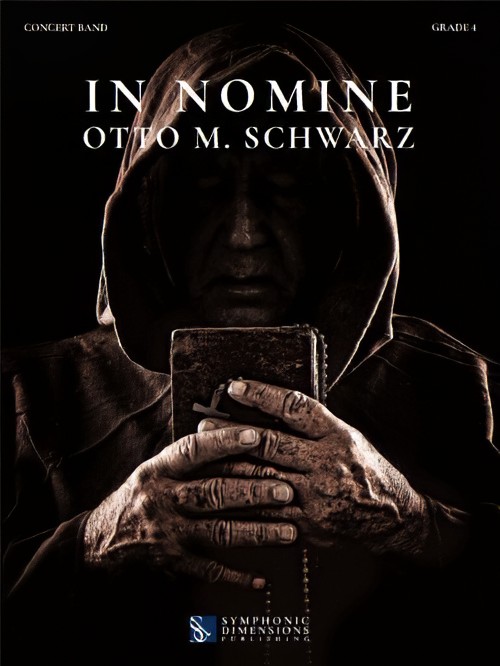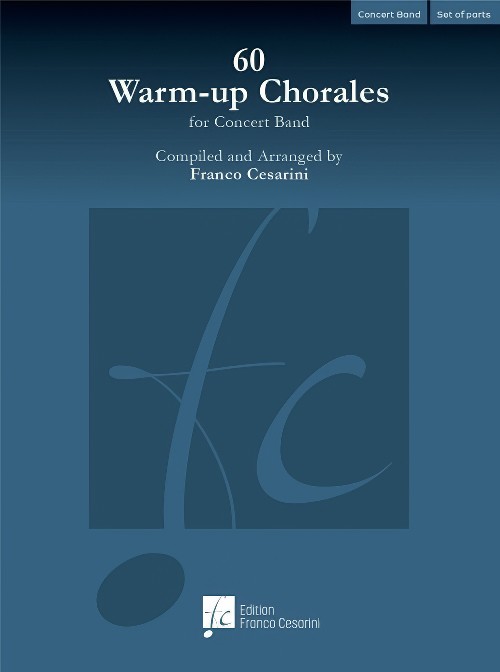Results
-
 £53.50
£53.50Four Pictures - Árpád Balázs
The teachers under whom rpd Balzs (b.1937) studied composition - Ferenc Farkas, Aram Khachaturian and Goffredo Petrassi - each independently formed the opinion that with his lyrical gift rpd Balzs's true creative field would be that of choral music and wind ensembles. Their early predictions are borne out by the roughly two hundred and fifty works for choir and almost twenty for wind orchestra that the composer has since produced. It is interesting that in the suite entitled Ngy kp (Four pictures) the stylistic features of these two related musical fields are united. In it the wind instruments sing! It was not by chance that the expansive second movement was given the title Cantilena, while the slightly livelier but just as lyrical third movement was entitled Arietta. The opening movement of the work is a stridently jolly, energetic Indul (March), but not one of the rigidly military kind: the 6/8 rhythm contributes to its light-hearted character. This music is avowedly akin to the ballet music of Prokofiev. This choice series of four character pieces is crowned by Jtk (Play) in which conveying the effect of the mixture of lines moving in parallel and then colliding with each other may be more technically demanding, but is well worth the effort! (Hungaroton HCD 31353)
Estimated dispatch 7-14 working days
-
 £102.99
£102.99Noel
Noel" is based on the famous English Carol "The First Noel". The age of this song is not clear.Some scientists argue that tis song is from early thirteenth century, others say that it's from the sixteenth century.The first publication was in 'Christmas Carols, Ancient and Modern', compiled by William B. Sandys. (London, 1833).The exact origin is unknown. By Norman influences on the text, with the result that the spelling of the song is not certified (Noel, Nowell), an individual will sometimes claim that France is the cradle of this song, but in general assumes that "the First Noel 'for the first time somewhere in England sung.
Estimated dispatch 7-14 working days
-
 £138.00
£138.00San Pedro de Alcntara - Valdemar Gomes
The Spanish war galleon with 64 cannons, built in Cuba between 1770 and 1771 for an English shipowner in the service of the King of Spain left Peru for Cadiz in 1784 with a huge cargo of copper, gold, silver and other valuables on board. There were also more than 400 people on board, including passengers, crew and Inca prisoners after a revolt. The Atlantic crossing went smoothly, passing Portugal to take advantage of favourable winds. The shipwreck off Peniche was the result of human error, apparently due to French maps with dramatic errors in the position of the islands of Berlengas and neighbouring islets. On 2 February 1786, the sea was calm and the night clear, but they hit the rock formation Papoa and the hull immediately broke in two. The bottom sank quickly, while the deck remained afloat for some time. 128 people lost their lives, including many Indians who were trapped in the basement. This shipwreck is considered one of the most important in maritime history.What the composer wants to convey, and what can be felt as one listens, is first of all the sound of power, of hope, of the glory of conquest, of the splendour of wealth. This is followed by the perception of the maritime environment, the harmony with the softness of the ocean, the gliding of the hull in the foam of the sea on sunny, blue days. But along with this tranquillity, you soon hear a rhythmic chain that makes you feel a representation of the hustle and bustle, of the busy crew, of the hard work of a sailor, of the desperation of an exotic people imprisoned in a dark, damp cellar. A distinct rhythm that reminds us of the "salero" of Andalusia, with its Arab influences and its people, the soothing of the resignation of others who are forced to submit. Then we clearly hear a crescendo that makes us imagine the agony of the collision that precedes the shipwreck. The breaking of the hull, the water flooding everything, the despair, the clash of bodies on the rocks, the tragedy to come. Before the "grand finale", in which the return of musical softness reminds us that the story is over. The supremacy of nature over human greed. The waves, though gentle, sweep the wreckage, the lives and the treasures of the New World to the bottom of the sea.
Estimated dispatch 7-14 working days
-
 £154.60
£154.60Den store dagen - Benny Borg
This beautiful song contains a huge contrast between the hopeful and the disappointing. A mother has her birthday and is waiting her children to celebrate it. Each verse starts optimistically, but the short chorus is characterized by the disappointment, that everyone calls, and cannot come. This has been tried recreated musically, mostly in the last two choruses, as it dawns on her that she will not receive a visit. It's a beautiful tune, but with a serious message that it's easy to take someone for granted.One of the elements the musicians came up with after rehearsal, was that they really liked the change between the ballad parts with even eights and the swing parts. This also gives the piece a sense of "parlando" character, which tells a story, and is therefore important to focus. It is not quite simple, as the melody also in those parts with even eights has some triplet rhythms. Therefore, this is a topic you can work on.Regarding instrumentation, Flugelhorn, Alto Saxophone and Euphonium have important roles, in addition to the rest of the first parts in the Band. The arrangement is written so you are not depending on "special" instruments. Important details are also often duplicated so you can use the arrangement for a smaller Wind Band.It is also possible to use a vocal soloist, but then you must soften the instruments that holds the melody.
Estimated dispatch 7-14 working days
-
 £126.50
£126.50Italian impressions - Angelo Sormani
"Italy is truly a magical land that has touched my heart beyond measure." These are the words describing the feelings that accompanied the various visits of the American conductor Wesley Broadnax in our country. Italian Impressions, a composition dedicated to Broadnax, portrays these feelings in three main sections that develop without interruption throughout the piece. The first section, "Magic Land," describes a trip to Rome and is a tribute to the splendor and magic of some of the venues in this city. Rich in historical and cultural significance, these places are moving because of their surprising architecture and artistic genius. The second part, "The Huge Castle," depicts his visit in the Umbrian Region. It is a reflective and suspended immersion in music that describes landscapes characterized by ancient houses, churches, courtyards, and squares. "Assisi," says Wesley, "is the city that glitters in the night sky, comparable to a huge castle!" The third part, "Medieval Ballad," is a reference to the city of Siena and Tuscany more generally. The main theme of this movement recalls medieval atmospheres and is based on the fourteenth-century ballad "Ecco la primavera" by Francesco Landino. The original material is presented, elaborated, and juxtaposed with new thematic motives, which lead to an energetic conclusion of the piece.
Estimated dispatch 7-14 working days
-
 £91.99
£91.99In The Presence of Heroes - James Swearingen
This exciting composition contains all the musical elements that you would want your ensemble to experience. A wonderful and moving tribute to our everyday heroes serves as the backdrop for this creative endeavor. The perfect combination of story and music results in a variety of musical settings that are masterfully scored to provide a quality of sound that is both impacting and, at times, highly delicate. It should be noted that a lush heroic theme is interwoven throughout the piece that will undoubtedly inspire members of the audience to sing to themselves as they leave the concert hall. Inspiring!
Estimated dispatch 7-14 working days
-
 £105.80
£105.80No War - Marco Somadossi
The theme of this composition is immediately evident from the title, which almost requires no further explanation. It will never be possible to represent or reproduce the full implications of a tragedy such as war, all too often forgotten, concealed, exploited or written off as being an evil that is "necessary" for the development of civilisation. War changes the course of human history: man kills man, fathers bury their sons, children take up arms, and mankind is devastated by evil, choosing death over life. The atrocities, repeatedly perpetrated and evident to all observers, are an offence to human dignity. Yet they are tolerated and, at times, even re-interpreted as inevitable remedies for "obstacles" to the global economy, in order- it would seem- to build "a better world". And all this goes on despite the fact that the terrible scars left by past wars are still evident and should serve as a warning to ensure that such tragedies do not return to devastate our world. "No War" is thus a heart-felt protest against any form of culture that justifies war as a means of gaining wealth and power, satisfying the economic needs of the richest countries at the expense of the poorest nations. In so doing the one truly fundamental value is annihilated, that of human life.
Estimated dispatch 7-14 working days
-
 £53.95
£53.95Operation Invictus (Concert Band - Score and Parts) - Webb, Amy
Operation Invictus is a rising band work that checks all the boxes: exciting parts for all players, commanding rhythms, and challenging, yet surmountable melodies that will leave your band feeling great about themselves and their performance. Each instrument gets to play snappy little licks that are so engaging they'll want to practice. Even the low brass gets some fanfare-like material that will sound powerful. The very word invictus is Latin for "undefeated." A tremendous piece at the easy level that can be played either at the beginning or end of your next concert or festival. Duration: 3.00
Estimated dispatch 7-14 working days
-
 £159.99
£159.99In Nomine (Concert Band - Score and Parts) - Schwarz, Otto M.
How often has something been justified by, declared to be, or blessed as 'in the name of' some cause or other? How can it be that opposing armies and the use of weapons are ever 'in the name of...'? This is a common thread in the history of different faiths. Good was created but evil was committed and all 'in the name of...' This thread is also found in the history of the Premonstratensian Abbey at Wadgassen. The abbey was built in the 12th century on unfertile, desolate moorland, which later evolved into the most powerful religious community in the Saarland. The history of the abbey records quite astounding achievements under the motto desertum florebit quasi lilium ('the desert will bloom like a lily'); but also the harsh treatment of delinquents. The order had its own school, in which children were taught the seven liberal arts (which included music as well as geography and astronomy), but the poor were left to starve outside the abbey walls and were only allowed to eat from the members' leftovers on feast days. The medieval witch trials demanded their pound of flesh, and one group that fell victim were ecstatic dancers who moved wildly to music, which was interpreted as the devil's work. The result: a show trial that sentenced the dancers to death by fire. All in the name of... The year is 1789: Abbot Bordier is in the tenth year of his command. He does not yet know that he is to be the last abbot of an almost 700-year tradition. Not far from the abbey is the French border, which has long been making itself felt with the sound of gunfire, and the brothers continue to keep a nervous eye on it. The first portents of the French Revolution loom, but no one wants to believe it, that is, until the French pound the door down, storm the abbey and come right into the brothers' chambers. In a blind fury, all the pipes of the abbey organ are torn out, icons beheaded with swords and brothers beaten death while numerous buildings are set on fire. The abbey church is in flames. A frantic and desperate escape begins. Abbot Bordier and a handful of brothers make their getaway via the River Saar, adjacent to the abbey, to the neighbouring village of Bous. They survive, but their life, the Premonstratensian abbey, is destroyed. While they flee towards Prague and the sanctuary of the Strahov Monastery, the abbey at Wadgassen is razed to the ground and becomes a stone quarry. The desert blooms once more, however. A few short decades later, a glasswork arises from the foundations of the abbey. As peace returns to the region, it brings jobs and a new vision for its people.Duration: 11.15
Estimated dispatch 7-14 working days
-
 £175.00
£175.0060 Warm-Up Chorales (Concert Band - Score and Parts) - Cesarini, Franco
During his experience as a band conductor and teacher of wind orchestra conducting at university, Franco Cesarini has dealt with the topic of warm-ups very frequently. Throughout these long years of conducting he has had the opportunity to try many existing methods, evaluating their advantages and disadvantages. After a long time, he has decided to compile a collection of chorales for warm-ups, which are organised according to the criteria that he considers most effective. While working on his60 Warm-up Chorales for Concert Band, Franco Cesarini has always borne in mind that amateur musicians play for pleasure. He feels that it is extremely important that they have satisfaction at every moment of the rehearsal and not to start the rehearsal with needless "punishing" exercises. Nobody is really motivated to start playing with scales, long notes, or tricky rhythmical exercises. There is often a distinguished absentee in band rehearsals, namely music itself! Although this publication does not foresee a specific tempo for the chorales, they should often be performed rather slowly but without dragging. Dynamics are not indicated, so that the conductor has the opportunity to draw the attention of the musicians to his gestures and to make them react according to his indications. Timpani and bell parts have been added with the aim of not leaving the percussionists completely inactive during the warm-up phase, but can also be omitted. The chorales are written in four parts (SATB) and are also playable in smaller groups. The four voices can be played in different combinations of woodwinds or brass quartets or in mixed combinations. The collection includes ten chorales for the following keys: D flat major, A flat major, E flat major, B flat major, F major and C major. With his 60 Warm-up Chorales Franco Cesarini would like to convey the message to play the chorales in a musical way, thus raising the musicians' awareness of phrasing, the right interpretation of cadences, rubato and agogic. Above all, never do anything without putting the musical aspect in the foreground. 60 Warm-up Chorales for Concert Band: A perfect collection to warm-up and improve tuning of a concert band!
Estimated dispatch 7-14 working days
